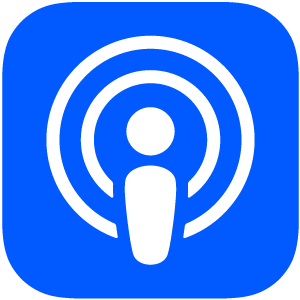S2 E9: Bryan Nguyen on Finding Connection in Silicon Valley
In Silicon Valley’s fast-paced tech industry, the drive to achieve often overrides the need for self-care. So as the director of the Meadows outpatient center there, how does Bryan Nguyen help people in his community learn to slow down, take care of themselves and connect with others?
Podcast Transcript
Bryan Nguyen: This is Bryan Nguyen. I’m the director of the Meadows Outpatient Center in Silicon Valley.
David: All right, Bryan. Thank you for being with us today.
Bryan: Thank you for having me.
David: Absolutely. We’ll start with just introducing you…your story, your journey, why you came to care about this work, and eventually, work in the behavioral healthcare field.
Bryan: Absolutely. I’ll go backwards a little bit in terms of the pinnacle point right before I got into my career of being a therapist. I was in an outpatient center much like this and coming every day for my own treatment. Throughout that outpatient center, I was able to create connections. I was able to confront my own vices. I was able to find hope and a solution to something that I had no idea was out there for my whole entire life.
The key jumping point was having access to outpatient treatment, being among a group of people who experienced life very similarly to what I was going through and walking out with a roadmap of plan, and most importantly, hope for the rest of my life. I’ve been in recovery for drugs, alcohol, and process addictions for a little while here. Coming back to where I come from, I can relate to a lot of patient experiences, both in recovery, in mental health struggles, and in cultural difficulties as well.
David: What was the cultural piece for you, if you can share that?
Bryan: In my personal experience, I come from a family that immigrated here during the Vietnam War. My family has carried a lot of intergenerational trauma just living through a war period. Not only that but acculturation difficulties in which coming over here they had their dreams or aspirations. They were dead set on a particular way to perceive life with concrete objectives, achievements, and metrics. They did their best to raise an American child. Now, I identify, bi-culturally, that I’m both American and I’m Vietnamese at the same time. Having this acculturation difficulty, it led to a very split path in my own conception of self and in being able to recognize where many other patients share similar experiences, where their parents come from different cultures, and their parents had different expectations.
Now, they’re in this role to not only fulfill their own personal life goals and their own personal happiness but suddenly, they have this expectation to meet their parents’ needs, or how their families conceive success. It has been something that has been prevalent throughout, especially this area and in many people’s [crosstalk]
David: Because it’s such a cultural melting pot here in the Bay Area, I imagine.
Bryan: Absolutely. It’s so diverse here. So many different walks of life. Underneath it all, each person is unique, of course, in their own walks of life and their own experiences. The beauty of having an environment like an intensive outpatient center, where they can come in for group therapy and hear each other’s stories and relate, is that they find those common threads that are just obstacles and thorns in their sides. We can all collectively come together to understand and to support each other and to provide hope as they work through their solutions.
David: Yes and hear that they’re not alone.
Bryan: Absolutely, yes.
David: It’s interesting, I imagine you’re a big believer in outpatient because that was kind of where the turning point was for you. How did that eventually influence or lead you, motivate you to want to do this work being the director of an outpatient center here?
Bryan: I remember, a couple of weeks into my intensive outpatient experience in which I was sitting in a group, I realized the connections I was having in that room were priceless. The people that I had met who inspired me, the strength, the motivation that they had to change things for themselves and their families was just incredible. The key point of this was seeing a leader, my group counselor at the time, bring together all of our common difficulties, our life experiences, and somehow weaving a tapestry out of that into recovery. I remember the day that I graduated, I asked my counselor, “How do I do what you do?”
She guided me, “Well, you can get this degree or this license. Then from there, you can go whatever path you like in treatment.” That was a day that I’ll never forget because soon after, I went right into some education, got my training, got my license, and I’m sitting here doing exactly what I dreamed of doing when I got sober and to be director of a place and really carry my passion as someone who’s walked through the issues myself. It has been just the cornerstone of my life here.
David: Before we go any further, could you unpack what is outpatient treatment? How is it different than higher levels of care, other types of treatment?
Bryan: The things that we offer in intensive outpatient are group therapy, which like I was mentioning before that ability to find connection with others is not only destigmatizing of a lot of the obstacles that people have in getting treatment in the first place, or being able to admit vulnerability, for example, that they’re not perfect, and that they need help with anxiety and depression. To have this group environment and for everyone to be understanding of each other is key and critical to a part of this healing.
Another portion that is helpful is when someone decides to use intensive outpatient to receive treatment here and then bring it back home to apply what they learn here they get to come back the next day, and they get to share how it worked for them. We got to work with very live, very immediate feedback in which they get to share how they’re implementing and applying all of this. It differs vastly from once a week of individual therapy in which you got to wait a week in order to come back and debrief and figure out what’s next. Here, we do it day by day as it comes and often throughout the day in which they could go back to work after a session in the morning, come back, and then in the evening, there are resharing what were the changes a couple of hours before.
David: Looking at your population here…we’re in Silicon Valley, California. Coming here, I had an idea of what it was like…all the tech companies, the long hours, non-stop, fast-paced, high-risk lifestyle. How does that play out when you’re seeing patients come in here? What are some of the unique challenges to this culture?
Bryan: Right. I noticed commonality is a lot of people having high expectations for themselves. Being able to do everything under the sun, balancing a full-time job with treatment as well and a family. Trying to maintain all those expectations for self and just be able to provide for not only themselves but for their families. Out here in Silicon Valley, we have a lot of tech jobs or other industries in which it’s no longer a typical nine to five.
A lot of times, we’ll have work from home type salary jobs or situations in which people can be very flexible with their time, which is both a blessing and a curse sometimes because if someone can’t detach from work and they carry it home and it pervades into their everyday life and living, then it can obviously compound into stress, anxiety, depression.
David: And blurs their boundaries.
Bryan: Absolutely, yes. Here at The Meadows, we focus a lot on boundaries because boundaries are the key point of how we can protect ourselves, both internally and externally. To create this work and to reach out to this community in which there is a high prevalence of work addiction among other processes and chemical addictions, I noticed some commonalities of avoidance, indulgence, externalization, deflection, all these things that are the result of whatever personal situations people are in. It’s very applicable to be able to come here and use our Meadows’ model to identify what they’re going through and to be able to find a solution.
David: Yes and related to that, I imagine that when somebody is coming from a fast-paced, non-stop work environment and/or home environment and then they come in out of that into this outpatient center. They’re doing that all day and they come in in the evening and then the outpatient is there. I imagine that it’s really important to create a safe space for them to slow down, but how do you do that? How do you set up that environment in a way that will allow people to unplug from how the rest of their day has gone?
Bryan: First, I’m going to offer one of the therapeutic interventions we utilize which is looking at a person’s reality issues. One of which that I definitely emphasize when we create that safe space is let’s detach from this expectation, from this comparison of others. When people are able to recognize that I’ve been living with this perfectionistic expectation of myself, and that’s based on what I see in other people’s achievements, and I carry their personal lives as my own goal. Of course, we can’t clone ourselves into other people. I can’t become Steve Jobs as much as I’d like to.
If I’m able to detach from that, recognize I’m in a safe place where I can let go of these expectations, I can receive the support of other people who are struggling with the same thing. My therapist, my environment here, they’re all helping me create these safe boundaries from my own emotions, and my thoughts, and my physical presence, that’s the first thing that people in this community can really look forward to when they come here. When we have a connective role and we create these relationships in our groups, it’s the meeting of two different realities. When that happens, that is the crucial point of our recovery here.
That is something that they can carry into their own environments, their own dynamics, and their own personal relationships. Oftentimes, it’s the shifting in perspective and behavior that is the overarching theme to the recovery here.
David: I’ve had the chance to talk with a lot of the staff members here. There’s art, Tai Chi, a wide variety of things that a lot of people may not necessarily immediately associate with behavioral healthcare. Why is it important to incorporate all that even in outpatient? That’s interesting that you make an effort to really bring all of that in for an outpatient treatment program, why is that important?
Bryan: I would say it’s due to the holistic component of healing. If we look at how addiction, for example, chemical addiction affects a person, it affects their body. Drugs and alcohol definitely has an effect on their body. It affects their mind. It changes the patterns of thinking, it changes the beliefs. It affects the emotional capacity and regulation of that individual person. It definitely pervades into their social life, and it can go as deep as really afflicting their spiritual components as well.
When I work with a patient, I educate them on several different dimensions of what we call self-care, that a part of the work is them showing up here, receiving the treatment, getting the therapy, getting the structure, getting the directions, but a significant responsibility is what they do on the outside. When they leave these doors, their recovery begins. It doesn’t end once they finish the treatment session here. They have the responsibility of, “How can I keep taking care of myself?”
I keep track of all my patient’s physical health in terms of their nutrition, their exercise, their sleep. We emulate that here through things such as Tai Chi, yoga, neurofeedback in which they’re treating where their bodies have been hurt or damaged by things such as chemical addiction or depression. Not only that, we heavily emphasize support structures here. Every patient has a regiment of support groups or support environments that they have to engage in. That’s because it’s hard to go through this alone.
David: That’s here at the program, or out in the community, or both?
Bryan: Out in the community. We help them find the right niche that they fit in. Part of my own personal recovery, what kept it so consistent and so beneficial and attractive to me is to have a group of people that understand what I go through and to feel at home. One of those key components to this social support is to always have someone to call, somewhere to go, something to do when someone is in crisis. Because the limitations of outpatient is, of course, you don’t have eyes 24/7. That’s where the empowerment and the responsibility comes into play for the individual patient.
We don’t want them to be dependent for their entire lives upon an outpatient center. We want to get them on their feet so that they can get rolling and get on with the lives that they choose for themselves. That’s going to need social support.
David: Zooming out and looking at the bigger picture now, what might be one thing that you wish the general public at large understood better about recovery, treatment, addiction, all that?
Bryan: I would say the first and foremost thing I’d like to share is that you are not alone. I know it sounds cliche, but until you walk in the doors of someplace in which there are other people that can help hold you up, and be there with you, and hear you, and listen to you, that is an experience that is just so unique and priceless to each individual person. These are issues that a lot of people have. With our current culture and our current expectations to always present well on the outside. Most people will never know what another family member, a neighbor, a co-worker carry on the inside.
When we have the privilege of meeting other people, whether it’s in a treatment center, or an outside support group, or some sort of community in which we can visibly see each other with vulnerability, the intimacy, and the safety to be able to present ourselves wholly and with authenticity, those are those pivotal moments, these connections that I would hope for every person out there to experience.
David: Looking at some things we might leave the listeners with today, what would be one favorite recovery book, resource, something that you’d recommend to people?
Bryan: I would say it’s getting out there and doing something that you crave, with limits in moderation, of course, but I found getting in touch with that spirit, like a horse running out on the open plains. Hearing where that spirit wants to take you, that’s something that I would recommend to anybody, and just see what you need on the inside. Sometimes, its connection, sometimes it’s taking a hike out there and connecting with nature. Sometimes it’s calling up that one person that has meant a lot, but you weren’t able to create those connections at the time in your life and just seeing if you can be heard and experience in your true self. Those things are underneath, we’ve needed all along. I hope people can access that and get out there and do that someday.
David: Kind of more of an action. Putting this into practice?
Bryan: Yes.
David: Finally, what would be one piece of advice, something that someone gave to you along your recovery journey that meant a lot to you, or something that you find yourself passing on that’s meaningful for others? What’s something you would share?
Bryan: I’d say the phrase, “This too shall pass.” I think people, human beings, are built to be resilient. All of us have incredible adaptive characteristics. In fact, addiction, mental health, those are all adaptive characteristics to keep us in survival. So to acknowledge that when things hit the fan, that is temporary, that they’re going to be emotions. There will be experiences that are very difficult, but we’re built to withstand those things and we can tolerate that distress. If it’s too much, we can go out there for help, but all these things will pass one day. That’s what allows us to have hope, to recognize we can do this.
David: Bryan Nguyen is the Director of Outpatient Services at The Meadows in Silicon Valley, California. Learn more about Bryan’s team and what that program offers at http://meadowsiopsv.com.






